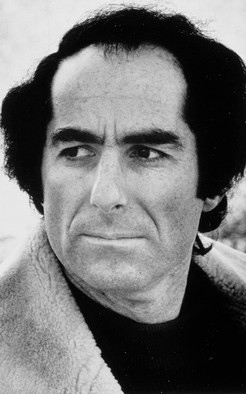Philip Roth citáty a výroky
Zdroj: [Zemřel americký spisovatel Philip Roth. Za knihu Americká idyla získal Pulitzerovu cenu, irozhlas.cz, 2018-05-23, 2018-06-01, https://www.irozhlas.cz/kultura/literatura/zemrel-philip-roth-pulitzerova-cena-americky-usa-spisovatel-literatura-americka_1805230615_gol]
Philip Roth: Citáty anglicky
“The road to hell is paved with works-in-progress.”
As quoted in "Works in Progress" in The New York Times Book Review (15 July 1979), page BR1
“Doctor doctor, what do you say, lets put the id back in yid”
Zdroj: Portnoy's Complaint
“In my childhood I led the life of a sage, when I grew up I started climbing trees”
Zdroj: The Ghost Writer
Portnoy's Complaint (1969)
Varianta: It’s a family joke that when I was a tiny child I turned from the window out of which I was watching a snowstorm, and hopefully asked, "Momma, do we believe in winter?
Zdroj: The Plot Against America (2004), Chapter 3, "June 1941 – December 1941: Following Christians", pp. 113–114 ISBN 0547345313.
Nathan Zuckerman to Philip Roth
The Facts: A Novelist's Autobiography (1988)
“Why must he mistrust his life just when he was more its master than he'd been in years?.”
Everyman (2006)
Interview for Martin Krasnik of the Guardian, (14 December 2005) http://www.theguardian.com/books/2005/dec/14/fiction.philiproth
“When you publish a book, it’s the world’s book. The world edits it.”
"A Visit with Philip Roth," interview with James Atlas, The New York Times Book Review (2 September 1979), p. BR1
Opening letter to Nathan Zuckerman
The Facts: A Novelist's Autobiography (1988)
“When the whole world doesn't believe in God, it will be a great place.”
Interview on CBS, 03 October 2010 https://www.youtube.com/watch?v=ZNv_a1CbX30, Philip Roth on Fame, Sex, and God http://www.cbsnews.com/news/philip-roth-on-fame-sex-and-god/ (3 October 2010)
